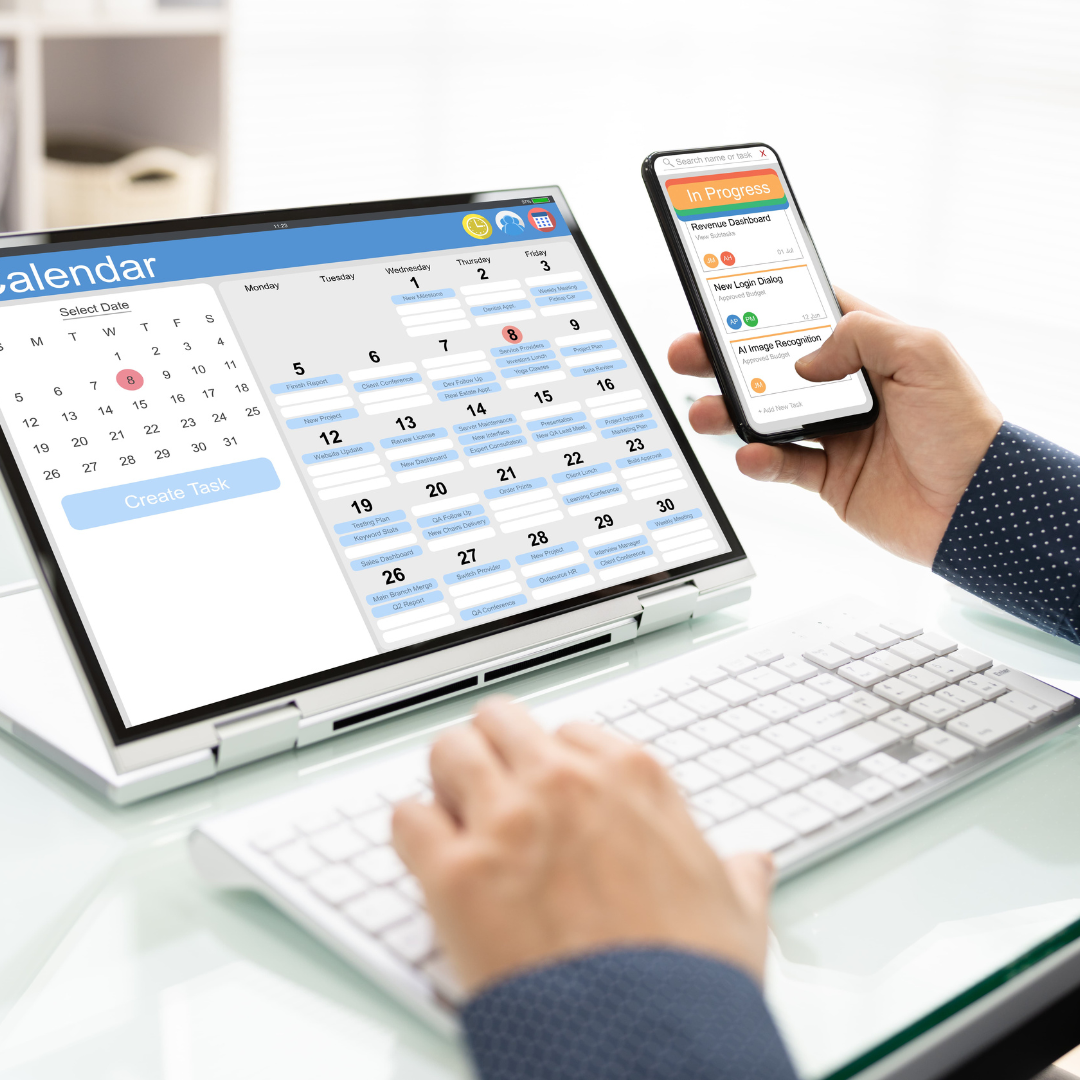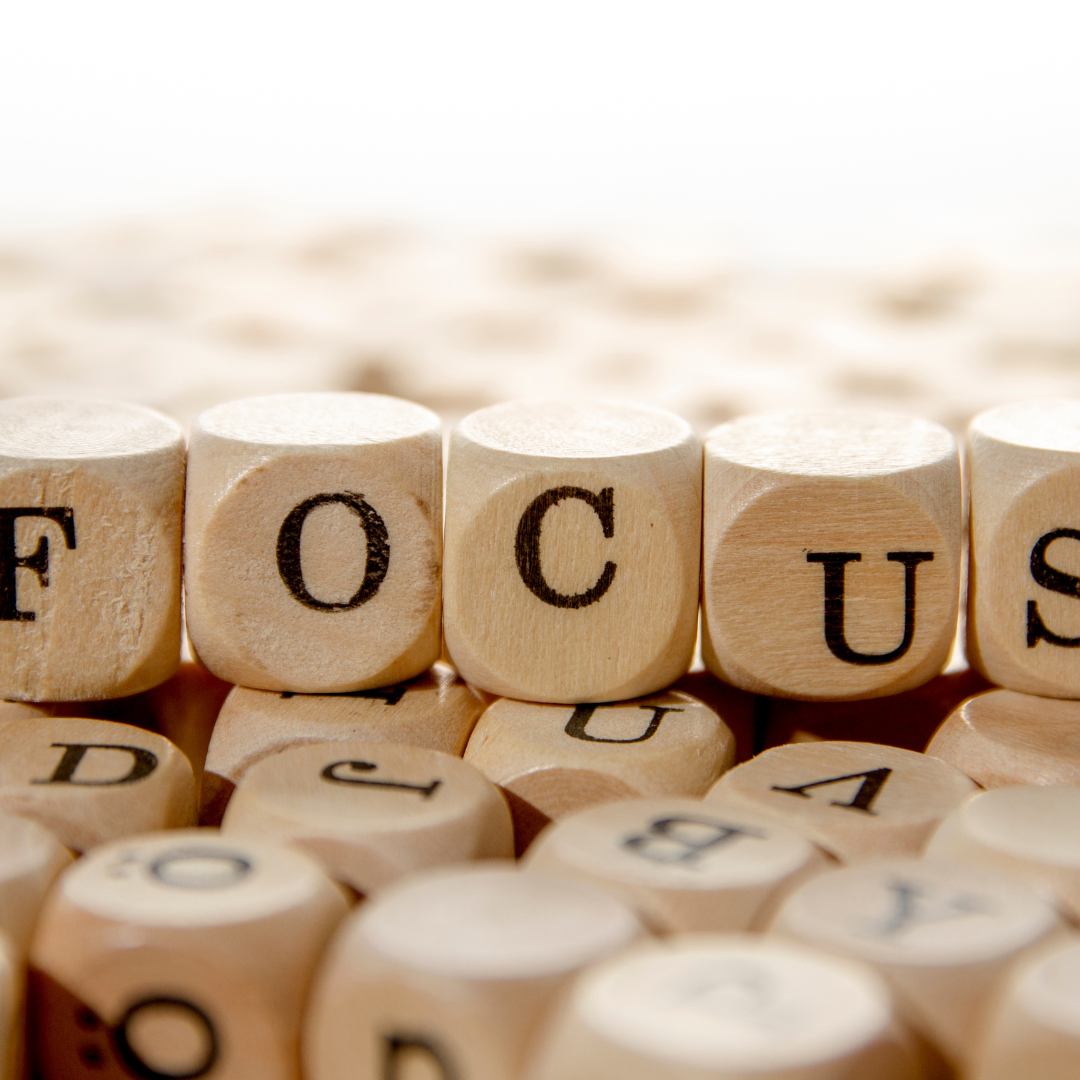

Time is one of the only resources we cannot get back. A common source of stress is the simple lack of “enough” time. With more than half the year behind you, managing your time is vital. But if you’re overwhelmed, where do you even begin? What are your best time management strategies for 2025?
We are living in a new world. We have access to AI, an overwhelming number of distressing news items, and a consistent pull for our attention. Time thieves are everywhere: draining relationships, excessive overwork, clutter, not to mention our screens. Your phone can be your best resource or worst enemy. How can you reclaim your time and set yourself up to best manage it?
Effectively managing time is a vital part of how we live our lives to the fullest. In order to get the most of life you want to make good use of every moment. This post pulls together some tips and strategies to help you better manage your time to supercharge the rest of your year, get your focus back, and get it done!

There are countless strategies for increasing your success. All of these strategies can be overwhelming. Is the secret in your morning routine or your nighttime one? You start to question if you’re not up at 4 am and off to work having meditated, worked out, and balanced your entire household that you’re a failure.
While your time management goals can be focused on getting more done or making more money or the ephemeral idea of “success,” a meta-analysis of multiple time-management studies found time management strategies have a greater effect on outlook, feelings of satisfaction and your overall well being as much as performance.
It’s less about how to get more done but more having a stronger anchor to your life and a stronger emotional connection to it. How we spend our time and value it can be viewed as how we love ourselves.
One study did find a connection between college students who had successful time management performed better with higher grade point averages proving there are benefits. However, one study debunked the old “time is money” adage, finding that mindset made employees less likely to engage with their organization and also impacting other environmental factors.
For some, time management skills can come from a different cultural context and some people have the privilege of learning them at a young age. While we can all have different access and privileges, having a healthy relationship to time and a greater sense of control of your life can be invaluable for your mental health.
How you manage your time can show you what you value. While some of the drains on your time can be a sign that you’re not in touch with what you love. Let’s look at some tips to supercharge your life by getting more of your time back.
One of the most effective things you can do to manage your time is to get to know how and when you work best. This may seem counterproductive but spending some solid time learning how you work best and doing some self examination can boost your efficiency overall which will save time in the long run.
Oftentimes, you waste more time trying to do what simply doesn’t work. There can be various times throughout the day when you work slower so tasks will simply take longer. Spending time getting to know your work habits then using that information to cultivate better habits can be transformative.
You may be wasting time trying to work when you simply won’t be efficient. Instead, you can rearrange your schedule and program tasks for when you work best. This can be invaluable feedback.
Try taking a week to examine when you have the most energy, focus, and vigor. Observe what you spend a lot of time doing. Make a list of the things you find yourself distracted by or stuck on. You could even keep a time diary for how you spend your time.
After a week, use this data to discover any patterns. Are there times of the day you tend to procrastinate or seek comfort? Are there activities that are taking longer than they should? After reflecting on the data you can try out new habits.
Maybe you save the bulk of your work first thing in the morning or before you have lunch because that’s when you have the most energy. Perhaps you find creative work is best done at night or that your whole life would be more efficient if you reorganized your closet, kitchen, or garage.
The more you take ownership of your time the more excited you will get to reclaim it from time sucks, energy wasters, and distractions.


Part of getting to know yourself is finding a schedule that works for you.
Do you work best with time blocking and itemizing your day?
Do you work better with organizing your tasks based on their priority?
Do you need more freedom to work your best or rigid structure?
Regardless of how you work best you will need to find some way to schedule to ensure nothing gets lost and you don’t hemorrhage time. A schedule that works with your mindset and workstyle can be the best way to start managing your time better.
In the same way budgeting your money helps reduce your spending, a schedule helps you reduce overspending your time. You can get into time debt, by wasting time and letting simple projects and activities take longer than they need to.
Having a schedule can help eliminate the ways you get into “debt” with your time. Procrastination, distractions like doom scrolling and binge watching, and poor planning can all get eliminated by finding a schedule that works for you.
Whether you need a paper day planner, a calendar app, or simply a diary where you log your time and to-do lists, a schedule helps you keep track of how you spend your time. While a time is money attitude isn’t effective, remembering the preciousness of your time and managing it accordingly can be very beneficial. After all, time is money but your time is not your worthiness.
Sometimes the one thing you need is a simple mindset shift. Sorting is a vital key to time management. This means both sorting out clutter, mail, and paperwork to ensure you know where everything is. It means sorting your home and workspace to eliminate distraction, chaos, and the many ways clutter robs you of peace of mind and efficiency. Every 10 minutes you spend finding your favorite sweater or keys in clutter is time wasted.
But you can also sort items on your to do list. You can pool together similar activities so that you can end up being more efficient. For example, what if you did all your errands in a 4 hour block on a Tuesday rather than making 6 different trips driving back and forth all week.
What if you put all your kitchen tasks in one area of your schedule to ensure that you took care of them all at once. Prime example, meal prep has become very popular. You prepare the week’s meals in a quick two hour session. You could pair this with cleaning the kitchen and a 3-4 hour block of time could save minutes to hours out of your week.
Similarly, grouping errands by location or tasks by the tools or skills needed can ensure that you get more done in a more efficient manner. You are doing things while you have momentum and also eliminating some of the lag time. Efficiency can be your best friend by freeing up so much more mental space, clarity, and focus.


While time management can focus on hours and half hour chunks like 30 minute workouts or 40 minute meetings a lot can happen in smaller increments of time. Looking at some of these smaller minute chunks can be really valuable in shifting your outlook.
If something takes two minutes or less do it when it occurs to you. More often than not this can not only save you time in the long run but also eliminate some of the drained time and energy you get from delaying the inevitable.
When we delay these small activities it becomes a backlog of unfinished projects. Not to mention reinforcing the “I’ll do it later” instinct is just encouraging bad behavior. Let’s say it
takes two minutes to empty your dishwasher. It can take 20 minutes throughout the week to continuously look for an extra spoon, look in your dishdrawer then go to the dishwasher then go back multiple times per week. Meanwhile you have to deal with dishes piling up in the sink which make everything taking a little longer.
If you did the small thing it would be faster. Similarly, it can take more time dealing with unsorted laundry than it can be to just take the time it takes to wash your clothes, fold them, and put them away in an order where you know exactly where what you need lives in your closet. This helps you reclaim so much time in the long run.
Do you struggle with procrastination or performance anxiety? Start a task for 5 minutes and if you want to stop you can stop. More often than not, once you build the momentum you’ll just finish it.
We can often waste so much time and energy thinking about things or dreading them when ultimately you just need to buckle down and do things. The more you reclaim your time and your energy the easier these tasks become in the long run.
If something is important to you, try carving out 15 minutes a day.
Do you want to:
We can often ignore really important priorities because we assume they will take so long. You may procrastinate for this amorphous 3 hour block that will never come or inspiration that may never arrive. However, small incremental changes can move mountains. If you carve out 15 minutes a day for what matters, that’s 7.5 hours a month.
Many people say time is a construct but how we view time is subjective. Doing this work and shifting how you look at 2, 5 and 15 minutes can help you be a bit more present and proactive in the day.


Leela Quantum Tech has found a way to give you access to pure quantum energy which is net positive energy that can boost your vitality levels. Their Frequency Cards are programmed with specific frequencies which can help you with your time management goals.
Whether you need Focus to be able to get more done in a timely manner, need a Prosperity card to help you value your time more and manifest more abundance these frequency cards can help you by giving you more energy to better manage your time.
Fundamentally, there can be two reasons you’re not effectively managing your time well. You either don’t know what’s wrong or you have a deeper mental or emotional block. While these Frequency Cards can’t tell you what you don’t know they can help you with those blocks.
There’s cards for Self-Love, connecting to your splintered self (Soul Comeback) there’s one for Happiness and even a Forever Young frequency. Regardless of the story you’re telling yourself if you need a mindset shift, emotional breakthrough, or simply more energy these frequency cards can offer you some support.
Time is precious and how you spend your time just might reflect on how much you love yourself. Whether it starts by putting yourself first or prioritizing what you love or simply giving yourself more time to rest and enjoy yourself, some changes to your time management can reclaim so much more energy and essentially bring your life back into your control.
How you’re spending your time can reveal some hidden truths like maybe you don’t love your job or career, maybe you need more physical contact or emotional connection, and maybe you’re not getting enough quality time by yourself. Hopefully these time management strategies help you get more time back.
Leela Quantum Tech can also give you a boost of energy to help with managing time and support major life changes. What are your favorite time management/time saving strategies? Share yours in the comments to help the community.
Share